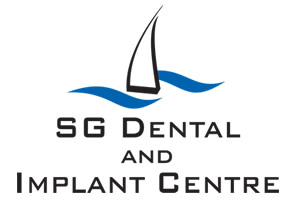Options For Restoring Or Replacing Damaged Rear Teeth
Our molar teeth take a lot of strain and can be prone to problems.
Every day, when we eat, all of our teeth are set to work, biting off chunks of food, breaking it down into smaller pieces, then chewing it before we finally swallow. This, quite naturally, puts strain on all of our teeth, but perhaps none more so than the rear molars. Especially if we eat something that requires a lot of chewing, our molars, or rear teeth, can be put under quite a lot of pressure.
In addition to this, our rear teeth can be more difficult to keep clean due to their location in the mouth. A very common place for decay to start for example, is at the very rear of our very back teeth. Reaching behind these teeth with a toothbrush can be quite tricky, even for the most dedicated brusher. As only around one in five of us also use dental floss, this problem is often exacerbated.
Treating rear teeth
Given the above, perhaps it is not surprising that the rear teeth are some of the most commonly treated at Mike Allen’s Dental Practice. As with all teeth, treatment can be minimised through regular examinations and early treatment where applicable. Problems can range from decay, to broken teeth, and in order to treat them effectively, there are a number of treatment options available to us.
Fillings
The dental filling is perhaps the best known treatment of all. Our Burton dentists often use white coloured fillings for many cavities as these offer the most natural look, and also require less of the natural tooth to be removed. Although much stronger than they used to be, this type of filling may still not offer sufficient strength for rear tooth restorations, especially for larger cavities. Other options, where a filling is needed are amalgam fillings, or, alternatively, a ceramic inlay or onlay, which offers both strength and a natural appearance.
Broken teeth
Where a tooth has broken badly, a filling may not be enough to restore it to a functional state and a dental crown may be considered instead. The damaged tooth will need to be shaped to accept the crown, and impressions will then be taken to enable the dental laboratory to produce the crown which will then be fitted to the previously prepared tooth. Crowns offer a good level of strength and should last patients for many years. Providing that you look after the natural part of the tooth; when the crown does eventually need replacing, this should be a relatively straightforward matter.
Extractions
Sometimes, a rear tooth simply can’t be repaired to any level that would make it functional for everyday use. Especially where long term decay has set in, it may be necessary to extract the tooth. Some patients may opt not to replace the missing tooth as ‘no one will notice’, but there are many good reasons for doing so, including the fact that you are likely to transfer the workload of that tooth onto another that may not have the same level of strength, causing even more problems further down the line.
Dentures
A partial denture can be used to replace a missing rear tooth. However, this is unlikely to offer the same degree of strength as a natural tooth, and some people do find that chewing with a partial denture can be problematic. This may lead to them restricting what they eat, often opting for softer foods. Dentures are, however, a straightforward way of doing this, with no dental surgery required.
Bridges
Bridges do offer more security than a denture, however, because they often involve attaching crowns on the teeth adjacent to the gap to secure the artificial tooth, they cannot be used on the very rear tooth, one of the most likely to suffer decay or damage.
Dental implants
If you are looking for security, stability and longevity, arguably the very best option for replacing a lost rear tooth is a dental implant. These are essentially, titanium posts that are inserted into the jawbone, and which replace the lost root of the tooth. This post is then given time to bond with the bone, leaving an extremely strong artificial root. A crown is then added to this to provide the patient with a very strong replacement tooth.
Whilst with a denture, patients may decide not to eat foods that require a significant amount of chewing, there are no foods that you can’t eat with a dental implant, that you could with a healthy natural rear tooth.
Each and every dental problem is unique and we will always try to save a natural tooth where it is practical. If you feel that there is a problem with your teeth and would like to discuss possible treatment options with one of our Burton dentists, please ring Mike Allen’s Dental Practice for an appointment on 01283 845345.
